‘Breaking Bad’ is widely regarded by critics, fans, and viewers across the world as one of the greatest TV shows ever made. Not a day goes by without coming across at least a couple of quotes or references from the show on the internet, so I think it’s safe to say that Vince Gilligan’s unforgettable drama is the most iconic show of the 21st century. ‘Sopranos’ had really set the standards when it came to crime dramas, and to think that another show could take the genre to the next level is beyond belief. Despite several plot convolutions, the show seamlessly transcends its genre, thanks to its stupendous writing. If ‘Sopranos’ is ‘The Godfather’ of TV shows, then ‘Breaking Bad’ is ‘Goodfellas.’
From a purely technical point of view, the show is almost flawless; the meticulously drawn-out visuals provide a lot of depth to the narrative, giving it a distinctive tone and mood. The writing is top-notch, probably the finest aspect of the show; every single character is deeply layered, and they’re all extremely well-acted by the supremely talented cast. A couple of years ago, in a character analysis piece I wrote for The Cinemaholic, I mentioned that ‘Breaking Bad,’ at its core, is the story of a man who feels liberated at the call of death. The sheer irony of death providing a whole new life to a man forms the crux of the show’s major themes and ideas.
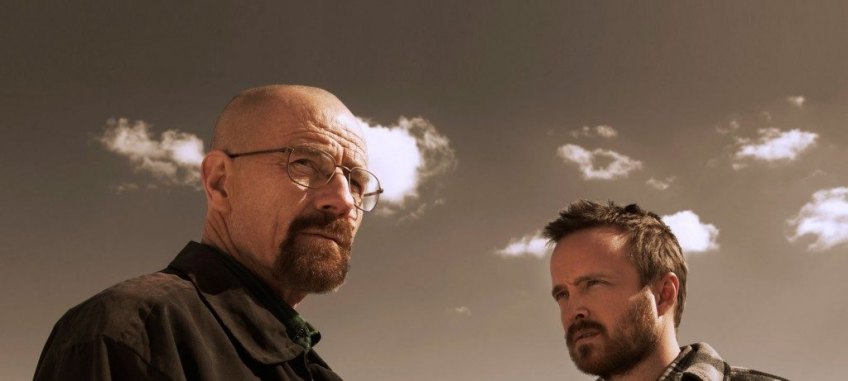
The show also has one of the most memorable, satisfying finales of all time. Gilligan and the team were generous enough to give Walter a chance at redemption. And honestly, Walter White, a 50-year-old man diagnosed with cancer, could not have died any happier: he manages to provide for his family using Gretchen and Elliot, healing his deeply wounded ego in the process. He kills the Neo-Nazi gang, avenges Hank’s death, saves Jesse, and then dies in a meth lab. For a man who was gonna die broke in a hospital with nothing left in life except regrets, this was a death he would probably have dreamed of. Now, an ending like that is definitely the most emotionally satisfying one the makers could have come up with.
However, over the years, I have begun to feel that the ending was a bit too dreamy, and one could clearly sense the pressure on the makers to pander to the growing cult of Heisenberg fanatics across the world. This certainly seems true now when you consider the fact that the makers initially had plans for another ending in which the entire White family would be killed and Walt would be the only person to survive. They then rejected the idea, probably because it might have been a bit too dark for a television audience. With all that said now, let’s dissect and analyze certain aspects of the show’s ending:
SPOILERS AHEAD.
Tying up Loose Ends
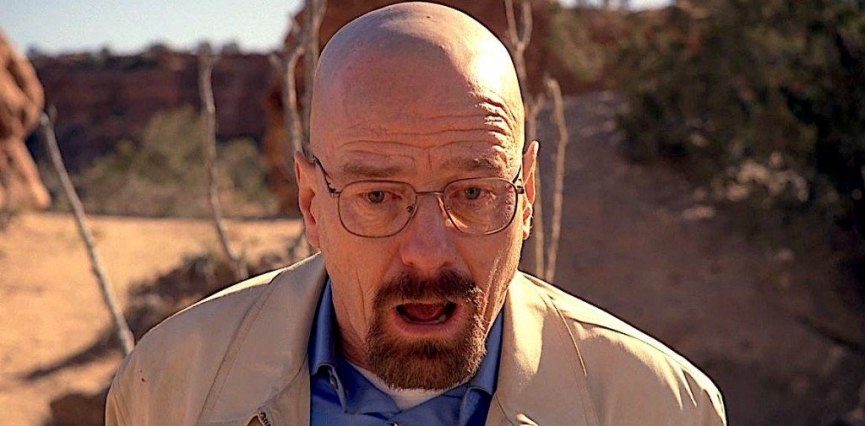
A great ending doesn’t necessarily require ambiguity, but one of the major issues with the show’s finale is how it neatly ties up every single plot element in an urge to answer all questions. One of the most striking aspects of Season 5 is its realism. The show gets so gorgeously dark and tragic towards the end as we see Walter White’s sense of morality being stripped bare. Walt eliminates his rivals one by one, like a king, and he builds his own empire. By the start of Season 5, Walt is at the height of his powers, his ego at its lethal peak.
What started off as just a way to provide money for his family becomes a matter of ego, pride and money for Walt, and we know that his journey would have disastrous consequences on the lives of those people who loved him the most. For me, ‘Ozymandias’ remains the greatest episode of the show; that’s where the show practically ended. Walt loses everything he fought for – money, pride, ego, his empire, Hank, and his family. Thematically, this was the culmination of everything the show tried to explore. It was a piece of such majestic beauty and raw emotional power. Everything post Ozymandias just seems like one long, final dream where things finally connect, motives are accomplished, and wishes are fulfilled.
Walter White as a Hero

It would be difficult to call Walter White a hero, or even an anti-hero for that matter. Walt is not a born criminal, he’s not a psychopath. What makes him a truly evil man is the fact that he chooses to break his own sense of morality every time. This is a man who clearly knows what he’s doing; he understands the grave consequences of his actions, but he’s willing to twist his morality to such dangerous extremes. His hand trembles when he first attempts to kill Krazy 8, but he remains frighteningly indifferent to the murder of an 11-year-old boy and shrugs it off as an unavoidable event.
Now, when you think of how the series ends, it’s clear that Walt died a hero. He grabs the one last chance life gives him to redeem himself. Did Walt deserve redemption because he was gonna die of cancer anyway? Did Walt deserve redemption because he lived the one last year of his life the way he wanted? Maybe he did, but to bracket Walt as a hero or a villain wasn’t what the show intended to do, which is why the ending doesn’t really do justice to the show’s thematic ambitions. Walt might have been a feared drug lord for a brief period of time but Heisenberg in him was long dead by the time he returned from New Hampshire. What remained was just a terrible, utterly powerless man who lived at the mercy of death. Walt was not a superhero with extraordinary powers; he wasn’t a king who fought the enemies to conquer the empire. He was just a deeply flawed human being who made one final, desperate attempt to gain control of his life. He didn’t really “have to” avenge the Neo-Nazis or prove a point. This was not a story of victory and defeat.
The Revenge on Gretchen-Elliot
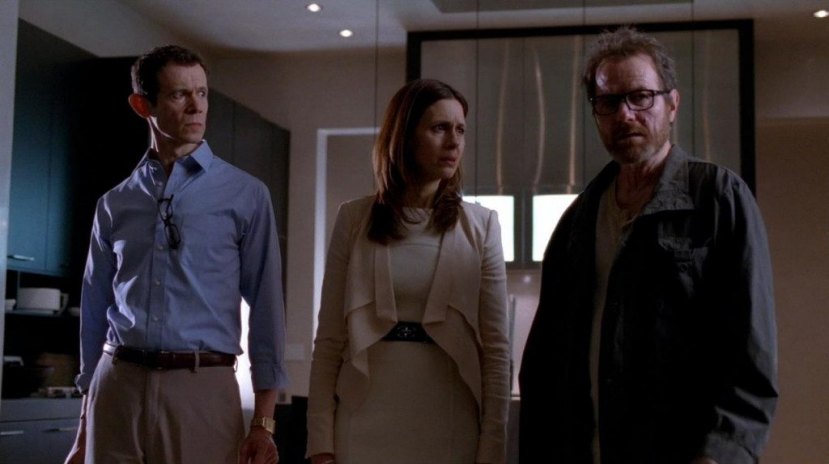
As I once mentioned in my character analysis of Walter a couple of years ago, the most crucial aspect of the show is Walt’s backstory involving Gretchen and Elliot. We never really get to know what happened between them, but it’s clear Walt’s ego was ripped into shreds. And over the years, feelings of repressed anger, jealousy and hatred piled up with no real escape from the confines of his subconscious. Heisenberg is a product of a shattered dream, a consequence of all that rage, pain, and ego that have been choking him up for years.
Another one of my issues with the ending is the part where Walt tries to make things “right” by threatening Gretchen and Elliot and using them to send money to his family. Now, this thematically contradicts what the show initially set out to do. One of the show’s most striking aspects is its characters’ flexible morality, especially the protagonist’s. Considering we know Walt and the depths of his narcissistic personality, it would be safe to assume that it was Walt’s own ego and pride that destroyed his relationship and business association with Gretchen and Elliot. But Walt is clearly painted as a hero who wants make right right when he returns from New Hampshire to meet Gretchen and Elliot and regain all his lost pride.
We never really get to know what brought back this sense of morality in Walt while he was alone in New Hampshire. How would a man who could witness the cold-blooded murder of a 10-year-old boy and poison an 8-year-old gain such moral clarity on things? The makers’ efforts to tie things up neatly and gratify the fans’ desires are evident. There’s a deliberate attempt to make us sympathize with Walt’s plight: An old man dying of cancer, trying to secure his family. But by now, Walt was truly beyond that.
Freeing Jesse
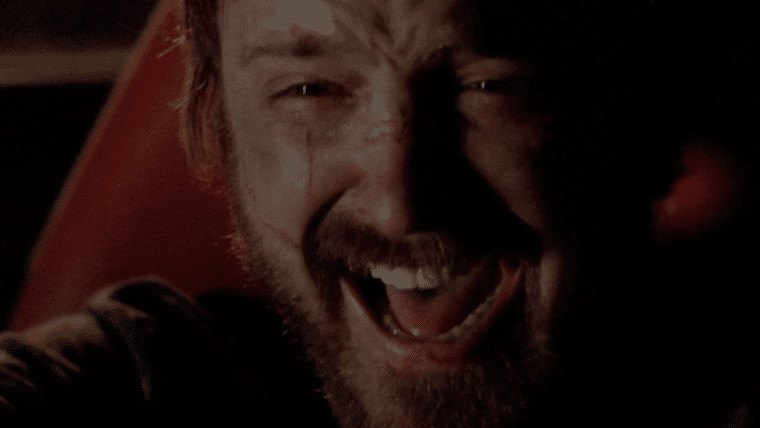
Perhaps the most mysteriously complicated aspect of the show is the relationship that Walt shares with Jesse. Some say Jesse was like a son to Walt, but it wasn’t really that simple. Walt brutally exploited the naivety, innocence and helplessness of Jesse. He knew Jesse was smart, he knew him better than Jesse himself. Walt was, in many ways, the father figure Jesse so badly wanted in his life. But for some reason Walt’s ego never let him admit the love he had for Jesse, and part of this was because Walt never wanted Jesse to know how smart he is because if he did, he might realize Walt’s true intentions and back out. It’s an incredibly complicated relationship that has many layers and shades. Throughout the series, Walt made sure that Jesse is safe and sometimes he did that even while risking his own life. He could have killed Jesse when he decided to back out right after Walt murdered Mike, but he has always had a soft corner for Jesse.
One of the most heartbreakingly cruel moments in ‘Ozymandias’ happens when Walt orders the Nazis to murder Jesse right in front of him. Did Walt’s anger escalate because he lost his money? Because the Nazis murdered Hank? Or was it simply because he ratted him out? The answer is never clear. But we know that Walt could never forgive Jesse.
The ending may seem a bit too rushed but, in my opinion, it does justice to Walt’s relationship with Jesse. This was perhaps the only way it could have ended. We never really know if Walt’s thoughts on Jesse had changed over time. And we’re left to assume that when he decided to meet Uncle Jack’s gang at their house, his intention was probably to kill Jesse, too, along with them. But after he saw him, he decided to save him. Perhaps there’s still some humanity left in Walt.
Of the many terrible things he’s done in his life, pulling Jesse along with him into a world of darkness and despair is, in my opinion, the worst of it all. And so freeing him was his ultimate redemption. Jesse’s fate is left ambiguous in the end. I’d like to think that he escaped the city and built a new life for himself. He might no longer be the same charming boy as he’s seen life at its worst. Jesse fiercely driving out of the Neo-Nazi compound and hysterically laughing is an image we will never forget.
Alternate Ending
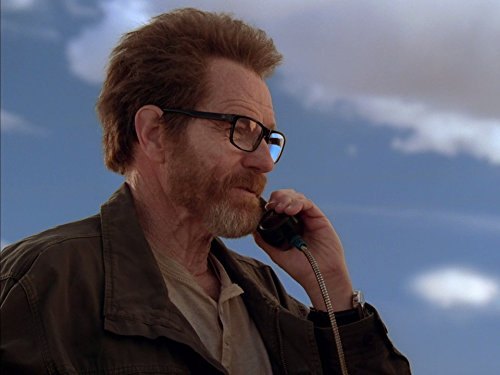
A number of fans came up with an alternate ending theory in which Walt dies in the car while attempting to get out of his hideout in New Hampshire. This, in my opinion, would have been the perfect ending for the show. It’s poetic in so many ways. Walter White built his drug empire defeating the most brutal drug lords and in the end miserably dies in a car, alone, broke. The Neo-Nazis were nowhere near Walt when it came to professionalism, intelligence and power and yet, it’s ironic that they were responsible for his eventual downfall. Such is the futility of power and authority. Gus, Tuco, the Cousins, they were all intelligent criminals, had a sense of morality, and played by certain rules. Uncle Jack’s gang did not believe in power, morality, and this is where Walt’s ego got the better of him.
Walt loved complicating things; he underestimated the gang’s dangerous lack of intelligence and sensitivity. He believed he could buy anyone off, but he was wrong. These are not people he could have made a deal with. These are cold-hearted killers who did not have any kind of plans or ideas for what they did. Walt dying in a car without avenging Hank’s death, losing all his money and family would have been a more tragic, realistic ending. Crimes do exist; but criminals have different faces. They can never be bracketed as black and white. Walt, Gus, Uncle Jack, Tuco, the Cousins, they all have different stories but they’ve all broken the same law, and shattered the same lives. Perhaps the writers could have chosen to keep the viewers at a certain emotional distance, but they gave in to the show’s popularity and went with a more concrete, overly dramatic ending.
Final Word
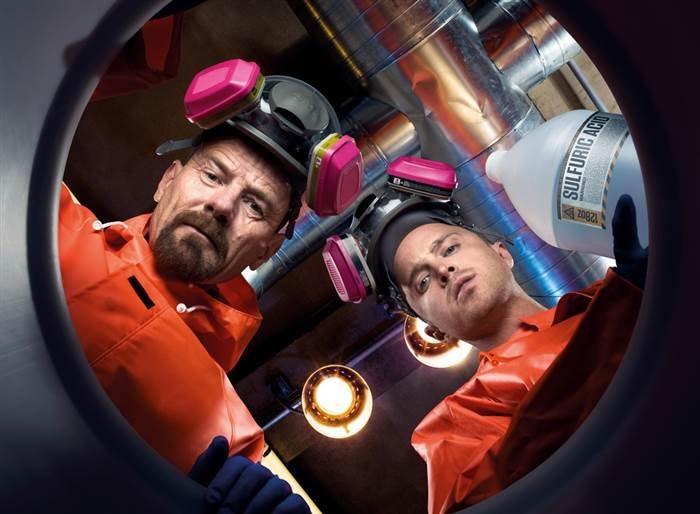
Series creator Vince Gilligan once famously said that he intended to “turn Walter White from Mr. Chips to Scarface”, and I believe he managed to do that in the most realistic way possible. While I have my fair share of issues with the ending, I certainly cannot deny how incredibly well made it is. And I’d be lying if I said I don’t shed a tear every time I see Walt gently caressing the lab equipment while “Baby Blue” plays in the background in that beautifully crafted closing scene.
It’s still an incredibly satisfying finale that leaves no questions unanswered. While it compromises, thematically, to some extent, this was perhaps the only way to make the ending more accessible and instantly appealing to a wider audience and its loyal fan following. However, that doesn’t really detract the greatness of the series. It still remains a landmark achievement in television history for having redefined and revolutionized an entire genre which, today, has become the mainstay of television.
Read More in Explainers: The Sopranos | How I Met Your Mother

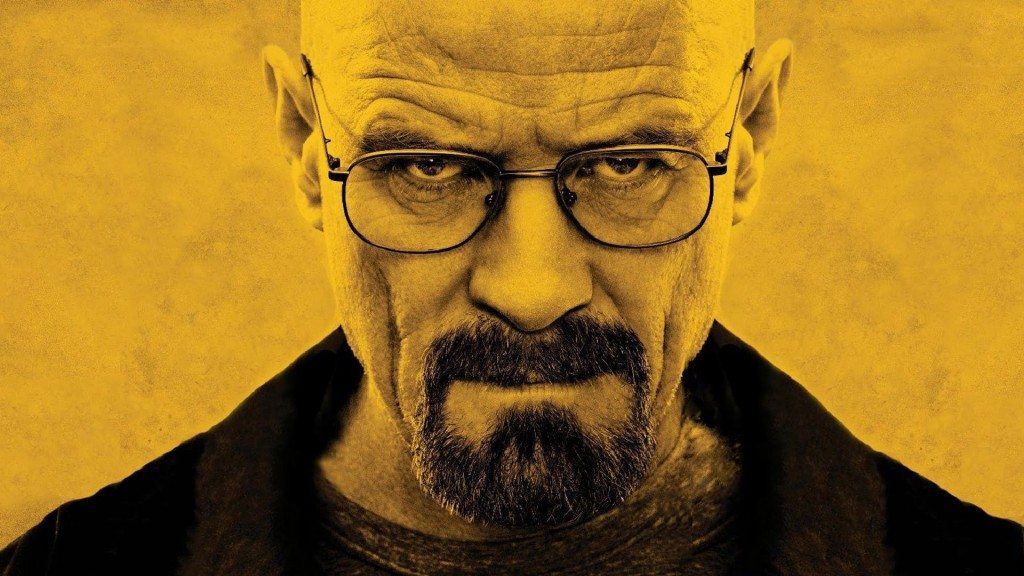
You must be logged in to post a comment.